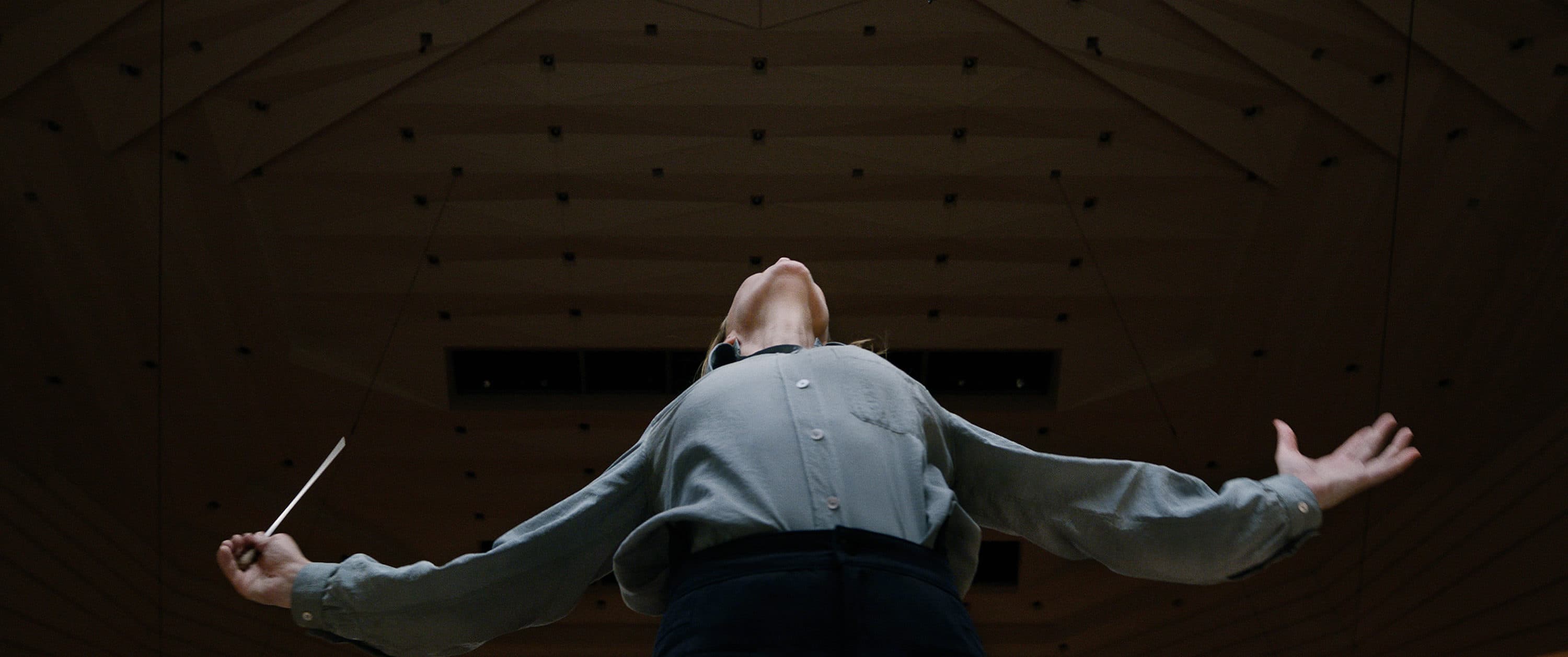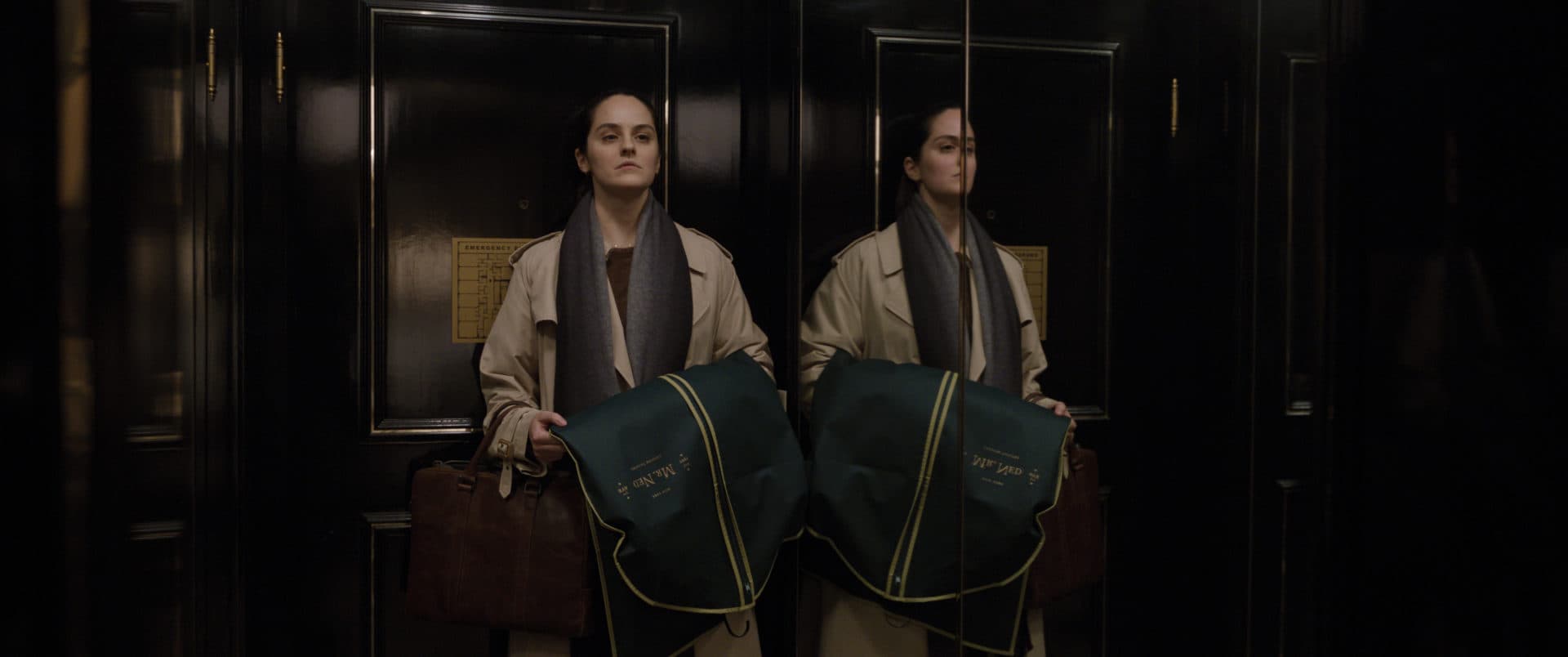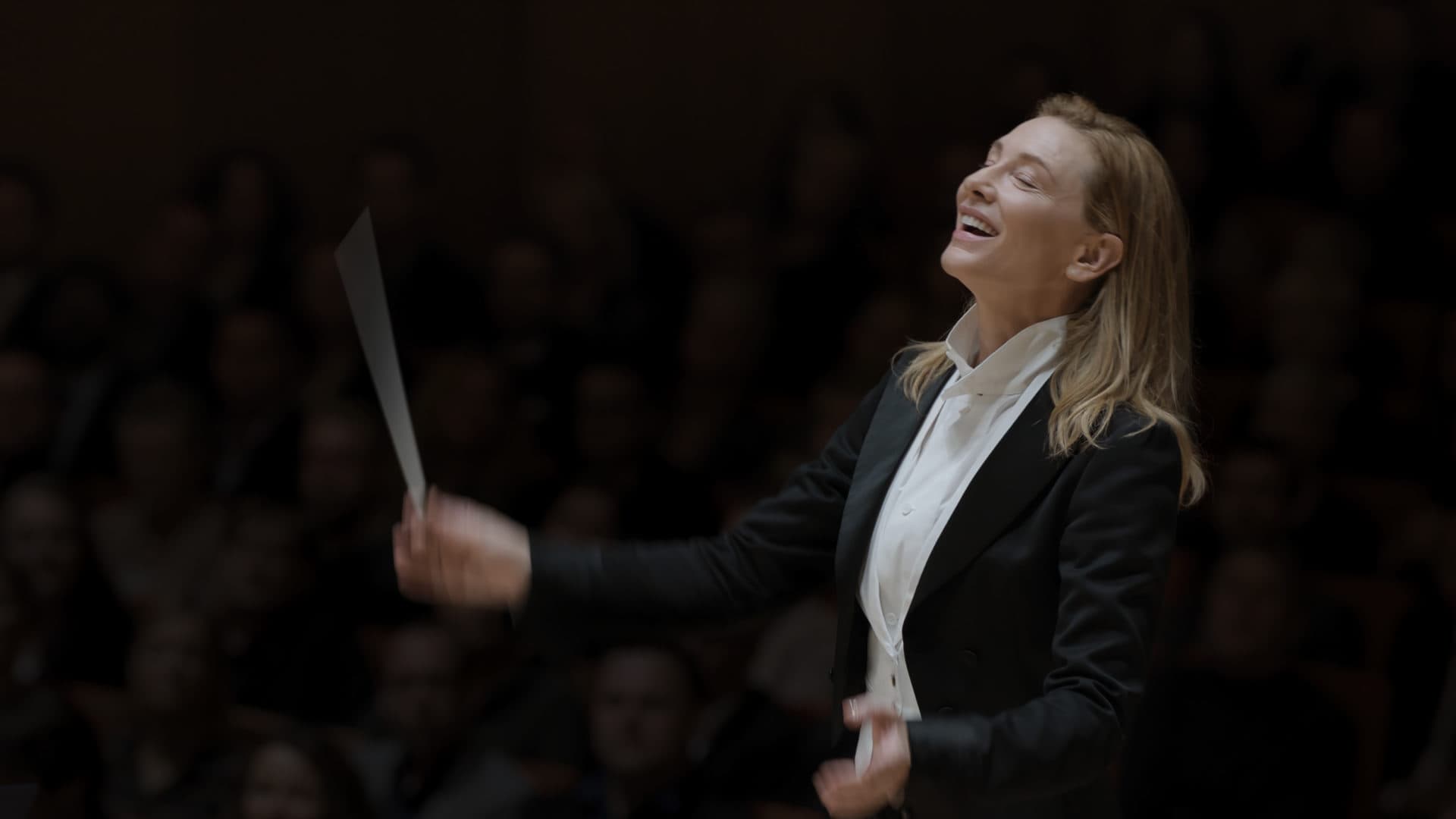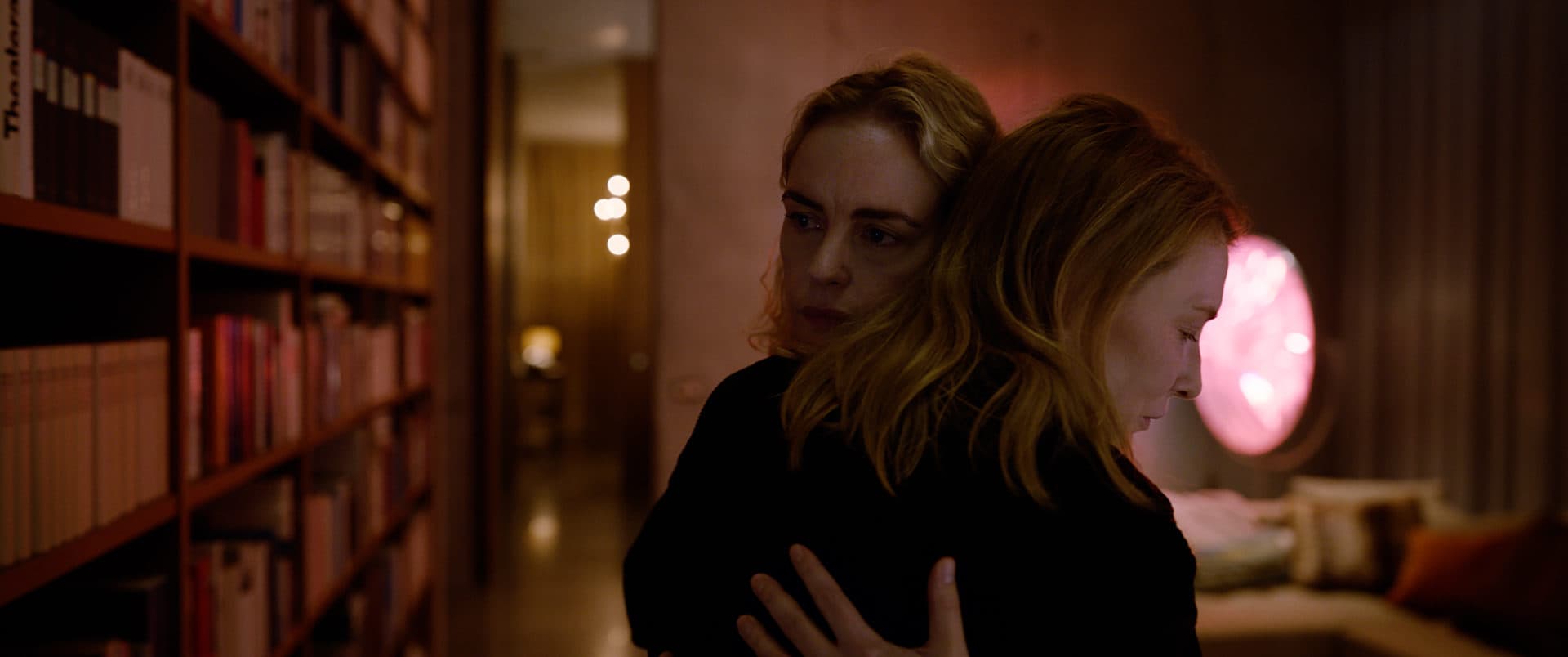Advertisement
Review
In 'TÁR,' Cate Blanchett portrays a genius conductor who's off tempo in a changing world

The conductor sets the tempo and controls the time. That’s what we’re told by Lydia Tár, a classical music prodigy portrayed by Cate Blanchett in writer-director Todd Field’s biting portrait of an egomaniac in decline. We meet the maestra at what might be her zenith, during a fawning onstage Lincoln Center Q&A hosted by The New Yorker’s Adam Gopnik. Playing himself with what one hopes is a healthy sense of self-parody, the writer breathlessly recites Lydia’s spectacular and seemingly endless list of accomplishments while they’re lip-synced to the letter by her long-suffering assistant (Noémie Merlant) watching nervously in the wings.

A protégé of Leonard Bernstein and composer in her own right who also conducts the Berlin Philharmonic and guest lectures at Julliard, the EGOT-anointed Lydia is a superstar in an increasingly rarefied arena. We watch her being whisked from luxury hotels to impossibly expensive restaurants, indulging obsequious donors and putting up with starstruck sycophants, brushing off compliments with a rehearsed modesty as cordial as it is false. She’s clearly a genius, and possibly a monster.
Early in the film, we catch a quick glimpse of her Wikipedia page being edited by unseen hands. The legend of Lydia Tár is about to be rewritten. You’re probably going to hear “TÁR” talked about a lot over the coming weeks as “a cancel-culture movie,” addressing as it does overdue reckonings regarding abusive behaviors long tolerated in the arts. (The minute the screening was over I immediately began to dread the discourse this film is going to inspire on social media.) But it’s more of a conversation-starter than an argument, asking questions for which there are no easy answers and playing upon our sympathies to trick the audience into interrogating our own personal permission structures. There’s nothing didactic about “TÁR” nor any simple moral you can hashtag or put on a bumper sticker. The film is complicated. Difficult. Much like its protagonist.

She’s a prickly one, our Lydia. A self-described “U-Haul lesbian” with a wife and adopted daughter back in Berlin, she despises when her achievements are discussed in terms of her gender or sexuality, bitterly resentful to be called “maestra” instead of “maestro.” The movie’s most potentially explosive scene takes place during one of Lydia's Julliard lectures, when a proud, “BIPOC pan-gender” student claims he doesn’t want to play Bach because of the “old white guy” composer’s unseemly personal affairs. Shot in a menacingly roving, unbroken take suggesting a nature documentary, our guest professor first politely, then viciously dismantles the young man’s moral grandstanding. Lydia stresses the necessity of separating the art from the artist, while simultaneously, sadistically separating the quivering lad from his dignity.
The great film critic Dave Kehr says you spend the first half of your career trying to tear down the canon and the second half defending it. I’ll confess to being exhausted by people in my profession eager to dismiss art from earlier, less enlightened eras for reasons that sound suspiciously like they don’t want to do their homework, so the first part of Lydia’s lecture had me wishing I could stand up and pump my fist while waving a cigarette lighter like I was at a rock concert. Yet she goes so far, and is so mean about it, it’s impossible not to think that maybe the lady doth protest too much.
The rest of “TÁR” aims to illustrate how difficult it truly is to try and keep a person’s work separate from their messy personal matters, especially when faced with real-time consequences you don’t have to worry so much about in the cases of old white dudes who have been dead for hundreds of years. Some will say Field is stacking the deck by making a #MeToo movie in which the perpetrator is a lesbian in a profession dominated by men, but I feel like it’s a clever way of messing with the viewer’s implicit biases, as I doubt a lot of audiences would be nearly as sympathetic to a movie about the same behavior from a man.

Where the film excels most is in its depiction of a world in which such things routinely happen, allowing us to understand exactly how. Cinematographer Florian Hoffmeister shoots the movie in beautifully burnished hues, cosseted in luxury and privilege with a hushed soundtrack devoid of sounds from the cities where it’s taking place. (The film gets louder as her fortunes fall.) For most of the running time, we’re inside the bubble with Lydia, where nobody ever dares question or contradict her and any aggression is passive at best, so a few misjudgments and improper indulgences are no big deal, right? But calling to mind the old Hemingway quote about bankruptcy, things change for Lydia first gradually, then suddenly. High society shoulders get cold awfully quickly.
Writer-director Field started out as an actor, most memorably playing the doomed orgy pianist Nick Nightingale in Stanley Kubrick’s “Eyes Wide Shut.” I’ve always felt that the best hidden joke in that film was that Nightingale wasn’t his stage name, and “TÁR” has a similarly poker-faced sense of humor. (It’s a very funny movie for the kind of people who think “Barry Lyndon” is a riot.) But there’s more here than just schadenfreude at the conductor’s comeuppance. It’s another of Blanchett’s extraordinary depictions of dissolution, less histrionic than her work in “Blue Jasmine” but in the same vein of someone unable to understand how rapidly the world around her has changed. Lydia’s a conductor who sets the tempo, but she can’t control the times.
"TÁR" begins screening at Kendall Square Cinema and AMC Loews Boston Common on Thursday, Oct. 13, and at the Coolidge Corner Theatre on Friday, Oct. 14.
